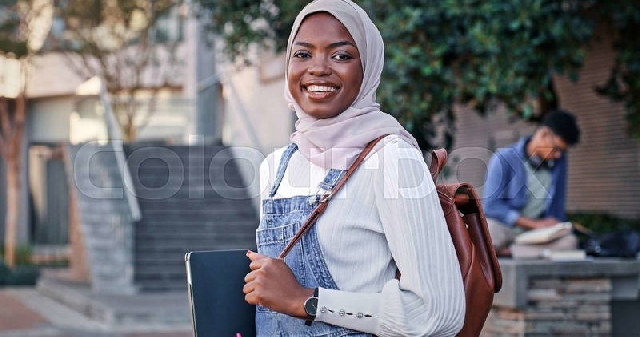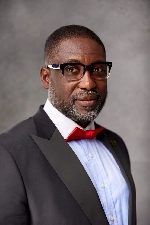Anglican Church of Ghana weighs in on Wesley Girls’ Hijab debate, calls for respect and dialogue
 Student with Hijab
Student with Hijab
A national conversation on faith, identity, and educational values has intensified following a recent incident at Wesley Girls’ High School in Cape Coast, where a Muslim student’s request to wear a hijab was declined due to the school’s long-standing dress code and Christian traditions.
The decision, rooted in the Methodist school’s mission and ethos, quickly sparked public debate and drew responses from major religious bodies across the country.
In a carefully worded statement issued from the Provincial Secretariat of the Church of the Province of West Africa, the Anglican Church of Ghana added its voice to the unfolding discourse.
The statement was jointly signed by The Most Rev. Dr. Jonathan B.B. Hart, Provincial Secretary, and The Most Rev. Dr. Cyril Kobina Ben-Smith.
The Anglican leadership expressed strong support for earlier positions taken by the Ghana Catholic Bishops’ Conference and the Christian Council of Ghana, both of which emphasised the autonomy of mission schools to uphold the religious identity of their founding institutions.
Citing Article 21(c) and Article 43 of Ghana’s 1992 Constitution, the Anglican Church underscored that freedom of religion includes the collective rights of faith-based communities, not only individual expression.
According to the statement, mission schools must be allowed to operate within their established values, which include dress codes designed to reflect their guiding beliefs.
At the same time, the Church acknowledged the sensitive nature of the issue, noting that Ghana’s rich religious diversity requires careful handling, mutual respect, and thoughtful engagement.
“Ghana is home to many faiths,” the statement noted, “and every tradition deserves understanding.
But imposing one group’s practices on another’s sacred space risks disrupting the harmony we cherish.”
The Anglican Church also called on government officials, religious leaders, and civil society to approach the matter with calm and openness.
Rather than allowing the debate to fuel tension, the Church encouraged stakeholders to see it as an opportunity for meaningful dialogue on coexistence and the role of religious identity in education.
The Wesley Girls’ hijab issue has since sparked wider discussions among parents, educators, students, and religious authorities, raising important questions about the balance between personal freedoms and institutional values in Ghana’s mission schools.
Trending News

Immigration Service interdicts 6 officers for 'gross misconduct', 'assaulting superior officer' seen in viral video
14:49
rCOMSDEP warns public against fake agents extorting money from miners
17:36
Ghana–Korea health partnership deepens as acting GHS D-G receives diplomatic service medal
12:23
Chinese Defence AttachévVisits Ghana’s Defence Ministry to deepen security cooperation
14:48
Tamale High Court orders rerun of Kpandai Parliamentary election
13:04
Over 19,000 people living with HIV in Bono Region as new infections surge — GAC warns
08:35
Ashanti NDC Regional Organiser dismisses allegations of Regional Minister’s involvement in galamsey
12:07
Politically procured judgement a threat to peace – Richard Nyama on Tamale High Court’s order for rerun of Kpandai parliamentary elections
15:23
UE/R: Navrongo MP revives 8-year-abandoned Upper East Innovation Centre, set for completion in six months
12:11
WHO warns gender-based violence remains a global public health crisis
14:42



